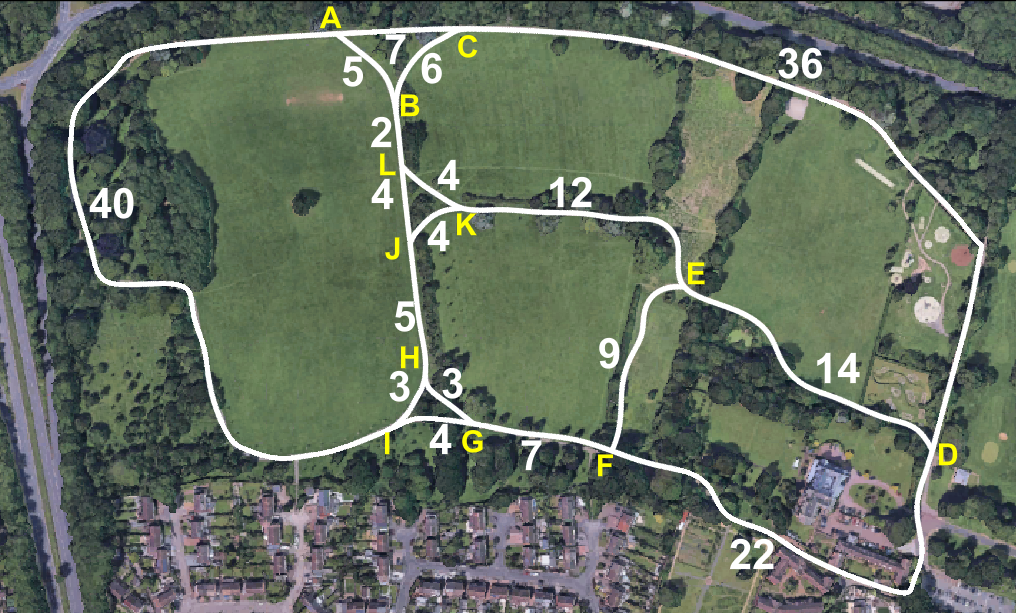We saw before how we can run the entire network of paths in 2.24 miles, by repeating the segments AC, BL, JK, HI, FG and DE. There are of course many ways of doing this.
Now I want to add extra restrictions:
If you run a segment you can’t immediately double-back and run the same segment the other way, eg you can’t go from A to C and immediately back to A. And because we are trying to form a complete cycle, you also can’t start and end on the same segment.
If you run one of the repeated segments twice in the same direction, you get penalty points equal to the distance between them, eg if you ran from D to E and later in the run ran again from D to E, you would get 14 penalty points for that segment, whereas if instead you ran D to E and later (but not immediately) ran from E to D you would not get any penalty points.
What is the fewest penalty points you can get away with?






